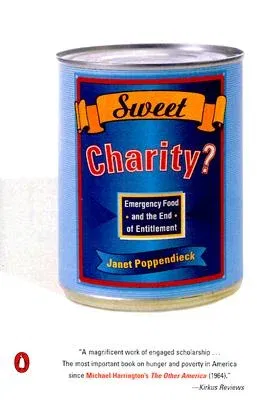Janet Poppendieck
(Author)Sweet Charity?: Emergency Food and the End of EntitlementPaperback, 1 August 1999

Temporarily out of stock
Free Delivery
Cash on Delivery
15 Days
Free Returns
Secure Checkout

Reading Age
Ages: 18
Grade Levels
13
Print Length
368 pages
Language
English
Publisher
Penguin Books
Date Published
1 Aug 1999
ISBN-10
0140245561
ISBN-13
9780140245561
Description
Product Details
Audience:
Ages: 18
Author:
Book Format:
Paperback
Country of Origin:
US
Date Published:
1 August 1999
Dimensions:
19.66 x
13.06 x
2.13 cm
Educational Level:
Grade Levels: 13
ISBN-10:
0140245561
ISBN-13:
9780140245561
Language:
English
Location:
New York, NY
Pages:
368
Publisher:
Weight:
303.91 gm